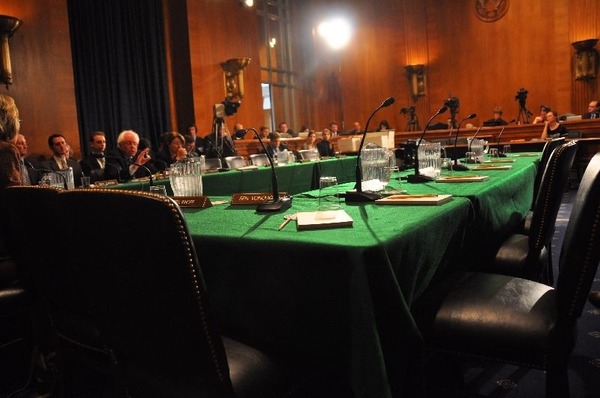Who are cap and trade’s winners and losers? Some of the companies you’d expect to suffer losses from the climate bill being debated in the Senate are actually going to fare pretty well, according to a report released yesterday by carbon-market analysts at Point Carbon.
The analysis looks at the net carbon cost to companies in the oil and power sectors, which account for 40 percent of all the emissions covered under the Kerry-Boxer bill. The legislation in both the House and the Senate would give these companies some allowances at no charge in the early years of a carbon cap, and would then reduce the number of free allowances over time. The net cost reflects the amount of carbon credits a company will need to purchase to make up for the difference between their total emissions and their free allocations.
One of the big winners would be Exelon—the country’s largest utility, a major user of nuclear power, and a strong advocate for climate legislation—which would stand to gain $1.7 billion each year under the proposed legislation, according to Point Carbon. Exelon was one of the first companies to leave the Chamber of Commerce in protest at the business lobby’s climate stance, and its CEO has appeared in ads backing a bill. FirstEnergy, a utility based in Ohio and Pennsylvania, would gain roughly $494 million and Edison would gain approximately $279 million. (The figures are based on Point Carbon’s forecasted average price of $15 per ton of carbon for the first few years of the program.)
For many energy providers, especially those who rely more on renewables and nuclear power, “carbon regulations will have a positive impact on their balance sheets,” the study found. Virginia-based Dominion stands to gain $210 million; North Carolina-based Progress Energy would gain $64 million; and Iowa-based MidAmerican would gain $69 million; Missouri-based Ameren would gain $58 million; and Minnesota and Colorado utility Xcel Energy would gain $27 million.
Even some companies you wouldn’t expect to do so well actually make out okay. Exxon—which alone accounts for 6.5 percent of all greenhouse-gas emissions covered under the Senate bill—would have to fork over $5.9 billion per year in the first years of the program. But they’d recoup most of that by charging more at the pump, bringing their total bill to just $277 million. While Big Oil has been among the most outspoken critics of cap and trade, the overall cost to the sector is fairly small—especially when taken in the context of the record $45 billion in profits that Exxon posted last year. Oil companies like Chevron and ConocoPhillips would be in a similar situation.
So who are the losers? Coal-reliant utilities will face the highest costs. Southern Company is expected to fare the worst, with a tab of $393 million, followed by American Electric Power at $252 million and Duke Energy at $129 million per year. Despite that, Duke has been a supporter of climate legislation.









